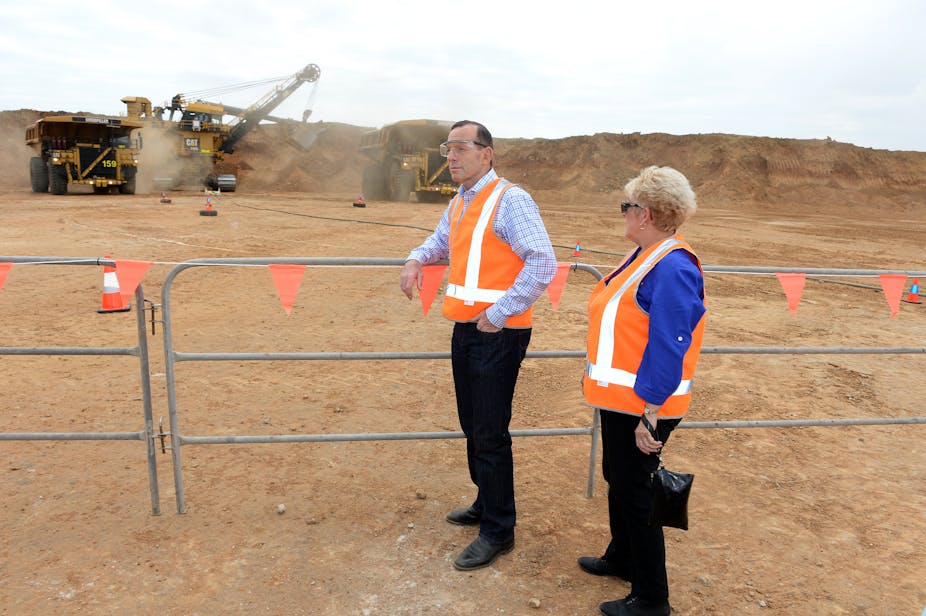The ANU’s recent decision to stop investing in companies it judges to have behaved in an unsustainable manner environmentally or even socially has attracted a great deal of attention. The overwhelming majority of it has been negative. Politicians, captains of industry and editorial writers have queued up to criticise the ANU and its beleaguered vice chancellor. The ANU managed to unite the Fairfax and Murdoch papers in outraged opposition – no mean feat in itself.
But is it really so outrageous to suggest that a university’s money ought not to be invested in products and practices that are deemed to be damaging in some way? What would some of the critics say if the ANU was investing in the tobacco industry, for example? Not only is it now widely understood that smoking has enormously damaging and costly consequences for individuals and society more generally, but it’s increasingly seen as unacceptable to profit from the industry as a result.
It hasn’t always been so. It’s only relatively recently that a sense of social responsibility and a notion of the collective good has transformed social values and expectations about harmful products like tobacco. Significantly, it took highly trained specialists to make connections between behaviour and health outcomes. The result was a massive change in the way many individuals behaved with benefits for them and for society more generally.
Vested interests in the tobacco industry weren’t too thrilled about all this, of course, as it directly affected their profitability. The coal industry finds itself in a similar position now – for good reason, in my view. We know coal is highly polluting and one of the largest sources of dangerous CO2 emissions. We know this largely as a consequence of the research conducted by highly trained experts within universities.
It would, therefore, be rather odd, if not reprehensible, for universities not to take notice of the research that is conducted by their staff, especially when its implications are so profoundly important and widely recognised. But universities not only have an obligation to respect the work of their staff – they have a duty of care toward their students, too.
Just how far-reaching this latter responsibility extends is plainly a matter of debate. But it’s hard to see how a university cannot take an ethical approach to investment decisions that could profoundly affect the lives of its primary ‘customers’. Investments that we know will actually contribute to climate change, for example – which is arguably still the greatest security problem facing us and, more particularly, future generations – are difficult to justify, no matter how profitable they may be in the short-term.
At a time when our political leaders are either unwilling to act for ideological reasons, or incapable of doing so because of the sheer difficulty of achieving domestic – much less international – agreement, responsibility for the fate of the planet and its future inhabitants falls increasingly on individuals, be they people, institutions or even companies.
Capitalism isn’t to blame for this, people are. The people who ran the Soviet Union were hardly beacons of environmental best-practice either. But the incentive structures associated with market forces make it especially difficult for any of us, much less, profit-oriented corporations, to rise above the short-term and the self-interested. And yet anyone with children really ought to have a powerful incentive to take a longer term view of the world and the way its economic and political imperatives operate.
Universities and their inhabitants are frequently accused of being out of touch with the ‘real world’, which is generally just a synonym – albeit an unacknowledged one – for private enterprise and individual interests. There may be much to be said for both, but they cannot be relied upon to produce the best of all possible worlds. Whatever the best possible future looks like, it is still likely to require some forethought and planning to achieve it.
We are under no obligation to care about the world we leave behind, but if we have any sense of intergenerational justice it would be nice to think that the students we teach and the children we have will have more to look forward to than simply figuring how to clean up our mess and making do with whatever we haven’t already used up.
The editorial writers at the Australian Financial Review sternly declare that ‘academics should not be advocates or activists’ and that it is ‘self-indulgent’ to criticise the corporate sector upon whom our welfare apparently depends.
This is a bit rich given the standard accusations about inhabiting ivory towers and failing to engage with wider audiences. It is hard to resist the obvious conclusion that work that underpins immediate private profitability is welcome, research that points to its potentially unsustainable long-term consequences is not.
Students are quite capable of seeing through the self-serving, the specious or the tendentious, whether it comes from their teachers or the editorial writers of papers they have long since given up reading. They are also capable of recognising that they are about to inherit a world full of problems that were not of their making. The least the older generation can do is to recognise this and not add to their burden.

